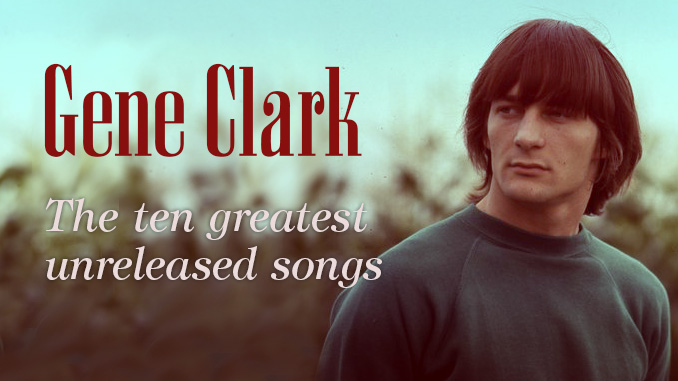
If you haven’t noticed the introduction, please read the first part of it (up to the paragraph about Marissa Nadler). Then you are on firm ground before listening to the favourites below.
Keep in mind that the songs from the eighties are demos, ranging from simple acoustic recordings, to those with sterile and bombastic productions. Also remember that Gene’s voice deteriorated due to increasing tooth problems (toothache and periodontitis), although this isn’t apparent until the late eighties.
The songs from the sixties are also demos, which of course hampers the sound quality. But make an effort to imagine how they would have sounded as official releases.
In addition, the list below contains compositions only available as live versions, which often undermines their true quality.
My Marie [1987?]
My Marie would be the perfect example to move mountains using music, which is evident already from the start of the first verse. The composition is in fact completely untouchable.
My Marie is nothing less than a musical hole-in-one. The song should had been promoted by a large record company, of course, to become a big hit, even without “Gene Clark” on the label.
Only Yesterday’s Gone [1970?]
When I listen to unreleased songs like Only Yesterday’s Gone – the striking melodies and melancholy appear to come from a parallel universe and yet again, I think about how much talent was lost.
Dark Of My Moon [1988–1989]
If you believe that grief, pain and suffering couldn’t be possibly conveyed in more beautiful ways, Dark of My Moon emerges and removes all doubts. It’s simply another outstanding song, coming from his magic pen.
Gene is without peers: “Midnight hour and the eyes of passion go flashin’ out of those ivory towers” and “When you’re gone you sell your time to anyone who can afford. To foot the bill for the way you carry on.”
There’s also a beautiful cover version by Carrie Ashley Hill.
Straight From The Heart [198?]
In Straight from the Heart we’re joining another funeral procession with Gene’s voice representing the mournful, while tears pour down the cheeks. Straight from the Heart is simply one of his best unreleased songs – and once again I bemoan that our hero didn’t sha(r)pen up, or at least had a manager who could have sold the song to a famous artist.
Pledge To You [1990?]
This is another occasion – and they’re getting numerous by now – where appropriate adjectives are lacking for the description of his songs.
Clark’s initial prayer turns into a storm of weeping poetry 48 seconds into Pledge to You with the words “For if the world we know should end without warning. I want one thing to be true”.
Even through the tears, Gene somehow never falls into the sentimental trap.
A Long Time [1966]
If Gene had been looking for a hit, A Long Time feels like the perfect choice. Right from the start, moody but also exciting and eye-popping notes spread, while Gene’s affecting and entreating voice is set at maximum power. The results are truly something spectacular. There aren’t many artists who can achieve so much using such few tools. I hardly dare to think about how good a real version could have been…
Your Fire Burning [198?]
When I listen to another heart shredding song by Gene, I get the feeling that it must be the same song time after time. Could it even be impossible to vary the theme in so many different ways – is there a chord that no other musician has found? Your Fire Burning is one of those songs. Try to imagine how wonderful the song could have sounded if it had been officially released with a proper production and if Gene was in better shape.
A couple of the comments below the video say everything that need to be said:
“The master of melancholy they call him, but he was so much more than that – melodies that go straight to the heart and a voice with a timbre that carried so much emotion. Gone way, way too early but his fire keeps on burnin’”and “To me being known as ‘master of melancholy’ is about the highest compliment you could pay a musician. Heartache we all suffer it but Gene was one of the very few who could truly sing it.”
The Hurting Game [198?]
There’s a smell of eighties demo on The Hurting Game, but the two contrasting voices – either freezing cold or warm – creates an electric atmosphere. The fascination increases when Gene punches yet another chorus that takes the shortcut to all hearts.
On The Run (With A Loaded Gun) [1987?]
On The Run (with a Loaded Gun) – the link takes you to a live version – Gene has been to the store to buy their entire stock of minor chords. Once again he’s inviting us and allows us to share his desperation. Despite the somewhat poor sound quality, it’s another wonderful piece of music that has to be downloaded on all computers.
Gene’s musical partner at that time, Pat Robinson, has commented below the video, which in retrospect feels a bit sad because Pat died in 2016: “This is one of the better CRY songs that Geno and I wrote in 1987 … it sounded great with the band live … Nicky Hopkins loved it … he called it a ‘Bonnie and Clyde love song …’”
I Saw A Dream Come True [1984]
A live version of I Saw a Dream Come True from 1984 appeared as a bonus track on the CD release of Two Sides to Every Story. You just have to be thankful, because we get Gene at his best; fully loaded as if he is delivering his own eulogy. Clark’s voice takes us on a painful and exposed journey set to a classic tune that could have been written in the sixties. The gloominess eventually becomes so intense that you expect the undertaker to come and take care of the remains.
Bubbling under:
The Sparrow [1970?]
Where Does The Love Go [198?; vocals: Pat Robinson]
Doctor, Doctor [1966]
For No One [1971]
One Way Road [1967]
Mary Sue [198?]
On Tenth Street [1966]
I Need To Fly [198?]
7:30 Mode [1967]
After The Storm [1987]
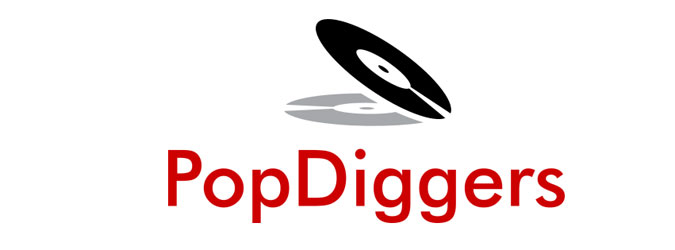
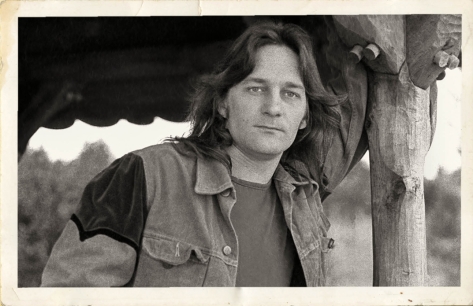
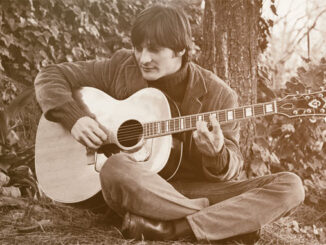
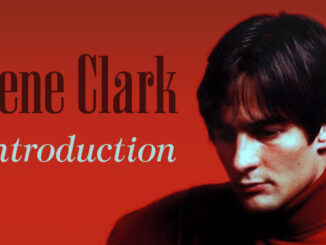
Be the first to comment